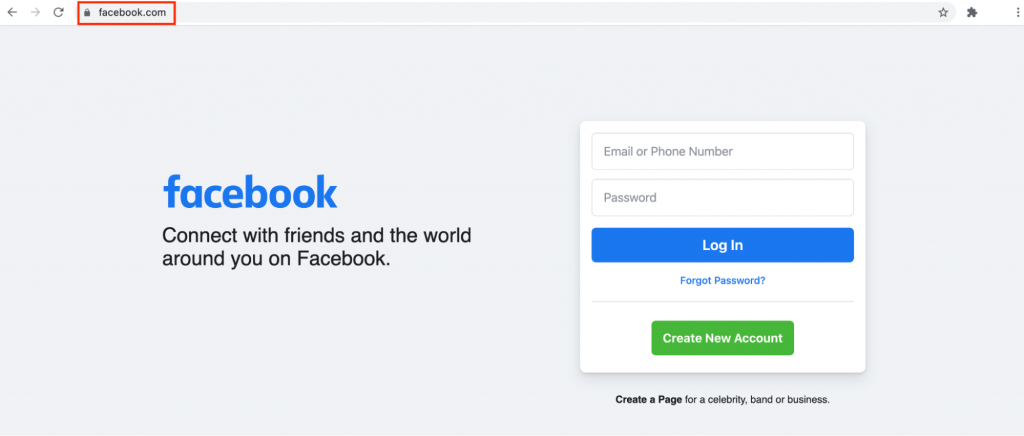.com vs .net – Differences Between Domain Extensions 2 0

A domain name is a part of the URL that people type in the browser bar to access your site. It will connect users to a web hosting server that stores the resources of your site.
The main parts of a domain name include a website name and an extension. For example, our website address is sinhcoms.com. Sinhcoms is the domain name, whereas the extension is .com.
There are thousands of extensions to choose from, but the most popular options are .com and .net. Both are suitable for businesses and have specific purposes that differentiate them from one another.
The main difference between .com and .net top level domains is that .com is intended for commercial use, while .net is best for network services.
So, how to choose which of them to use? In this article, you’ll learn the differences between .com vs .net, and also their pros and cons, to help you decide which one is more suitable for your needs.
What Is a Domain Name Extension?
Without domain names, visitors would have to use IP addresses, which would be hard to memorize and also inconvenient to type.
Preferably, a domain name should match your business name as it can help visitors easily find your site, driving more traffic and increasing brand awareness along the way.
A domain name extension is also known as a top-level domain (TLD). TLDs are the part of the domain name located right after the last dot.
The domain name extensions help inform visitors what the website is about. You have certainly noticed that there’s quite a variety of extensions in use: .com, .net, .org, and many more.
Each of them fits a different purpose. Common domain extensions like .io, .com, and .net fall under the generic top-level domain (gTLD) category. While mostly trivial nowadays, .com stands for “commercial,” while .net is short for “network.”
Many non-profit businesses and organizations use the extension .org, which originated from “organization,” to show their non-commercial nature. However, anyone can use these domains, regardless of the type of website they have.
Other gTLDs, such as the sponsored top-level domains (sTLDs), are restricted to specific use cases – examples include .mil for military entities and .edu for educational institutions.
In addition to gTLDs, there are also country-code top-level domains (ccTLDs). A ccTLD represents the country the company or website is based in, such as .uk for the United Kingdom and .in for India.
Note that you don’t have to use a ccTLD just because you live in a certain country or have a business presence there. However, having a ccTLD usually makes it easier for customers to find local businesses.
.com vs .net – Main Differences
Since both .com and .net are generic top-level domains, many people assume that they’re interchangeable. Knowing the difference between .com vs .net domain extensions is essential to choose which one is best for you.
.com is the most popular domain name extension, used on 52% of the websites on the internet. That’s because it mainly represents commercial intent, and it’s also very easy to guess.
If a customer wants to find your website, their first option will certainly be yourbrandname.com. Thus, .com is a domain name extension suitable for all types of online businesses, from eCommerce sites to blogs and corporate pages.
On the other hand, a .net domain extension isn’t as generic as a .com domain. Businesses that use .net extensions are mostly network services, database providers, and technology companies
.com vs .net – Pros and Cons
If you’re still debating between using .com vs .net, make sure to factor in the advantages and disadvantages that each may bring to your website. To help you out, we’re going to compare .com vs .net domain extensions in this section.
When it comes to using .com domain extensions, the main pros are:
- Memorable. The .com extension dominates domain addresses, making it more recognizable than other extensions. People will instinctively type the .com domain extension when looking for your site.
- Credibility. The .com domain will help present your website as business-oriented, helping to instill trust in customers.
- Easier to type. A lot of devices have a dedicated .com button on the keyboard for quick typing, making your address mobile-friendly as well.
- Affordable. This domain name extension is available for ₹650/year.
However, there are a couple of cons to consider:
- Unavailability. It can be tough to find a domain name with .com available, as many websites already use it. As a result, you may need to look for a different domain name. Domain name generators can help you come up with an idea.
- Too generic. If you provide services in a specific location or language, it might be more interesting to use a country-code top-level domain. It will help potential customers know that your business caters to their region.
As for the .net extension, some of its pros are:
- Technology-oriented. The .net domain extension is a great choice for businesses that specialize in networking and internet services.
- Availability. Compared to .com, there’s a higher chance of registering a .net extension for your chosen domain name.
- Marketing. The .net extension is best for promoting internet service providers and networking websites since potential customers will immediately associate .net domain extensions with your industry.
On the other hand, using a .net domain name also has its cons:
- Limited in scope. Not many businesses can use the extension .net since it is associated with technology services.
- Higher costs. A .net domain extension costs around ₹1200/year. Look for a shared hosting plan that comes with free domain name registration to reduce your expenses.
Domain Names and SEO
Search engine optimization (SEO) is another factor that you need to consider when choosing a domain name extension.
The truth is, your chosen extension won’t significantly impact your rank on Google or other search engines. You might have heard that .com has the most positive impact on your site’s ranking. However, other extensions like .net have an equal chance to rank well.
There’s one exception to this rule. Geo-specific extensions like .uk and .in will impact search rankings on the local level. The reason behind this is that audiences are more likely to click on the site when the domain name contains their country code.
However, owning a ccTLD is only possible if your business manager and the domain’s administrative contact reside in that specific country. In this case, secure your main domain extension along with the ccTLDs to expand your reach in target areas.
Experts advise including relevant keywords in your domain, such as mycakeshop.com instead of myshop.com. People who see your domain name will immediately know what your company is about. That’s more important than the domain extension alone.
So, if you want to increase your visibility on search engines, the best practice is to invest in a sustainable SEO strategy.
When to Use .com Domain Names?
The domain extension .com represents a professional entity that does business online. Due to this, the suffix .com is highly valuable from a branding standpoint.
It does not mean, though, that only for-profit companies are eligible to use .com. If you’re a non-profit organization, use a .com domain name to sell items or promote events to raise funds for your cause.
Today, the use of .com is more general in scope. Aside from a business website, a personal blog and a portfolio site can also go with the .com domain extension to improve their online presence.
When to Use .net Domain Names?
There are situations where you might want to use a .net domain name rather than .com to better reflect your business purpose.
A .net domain extension is best for websites that operate in the technology and networking field. It helps the audience understand what your business is by simply looking at your domain name.
An example is Slideshare.net, which is a networking platform for sharing pre-made slide designs, infographics, and other professional content.
So, as long as .net represents your business purpose, you can use it as a domain for your site.
Moreover, 3.1% of websites have the .net domain name. Since fewer websites use it, opting for a .net extension will make your domain more unique.
Do You Need Both Extensions?
To protect your site, consider acquiring .com as well as .net. This way, you’ll reduce the risk of competitors using a domain name very similar to yours and even capitalizing on it.
Customers might go to yourbusiness.com instead of yourbusiness.net, believing that they’re at the right place.
Typically, this kind of scheme attacks larger-scale sites. Malicious third parties might even ask you for a large sum of money in exchange for the imitated site.
Aside from security, having multiple extensions will help increase your site traffic. Even if customers enter your site from a .net domain name instead of a .com, they’ll still be redirected to the sae page.


